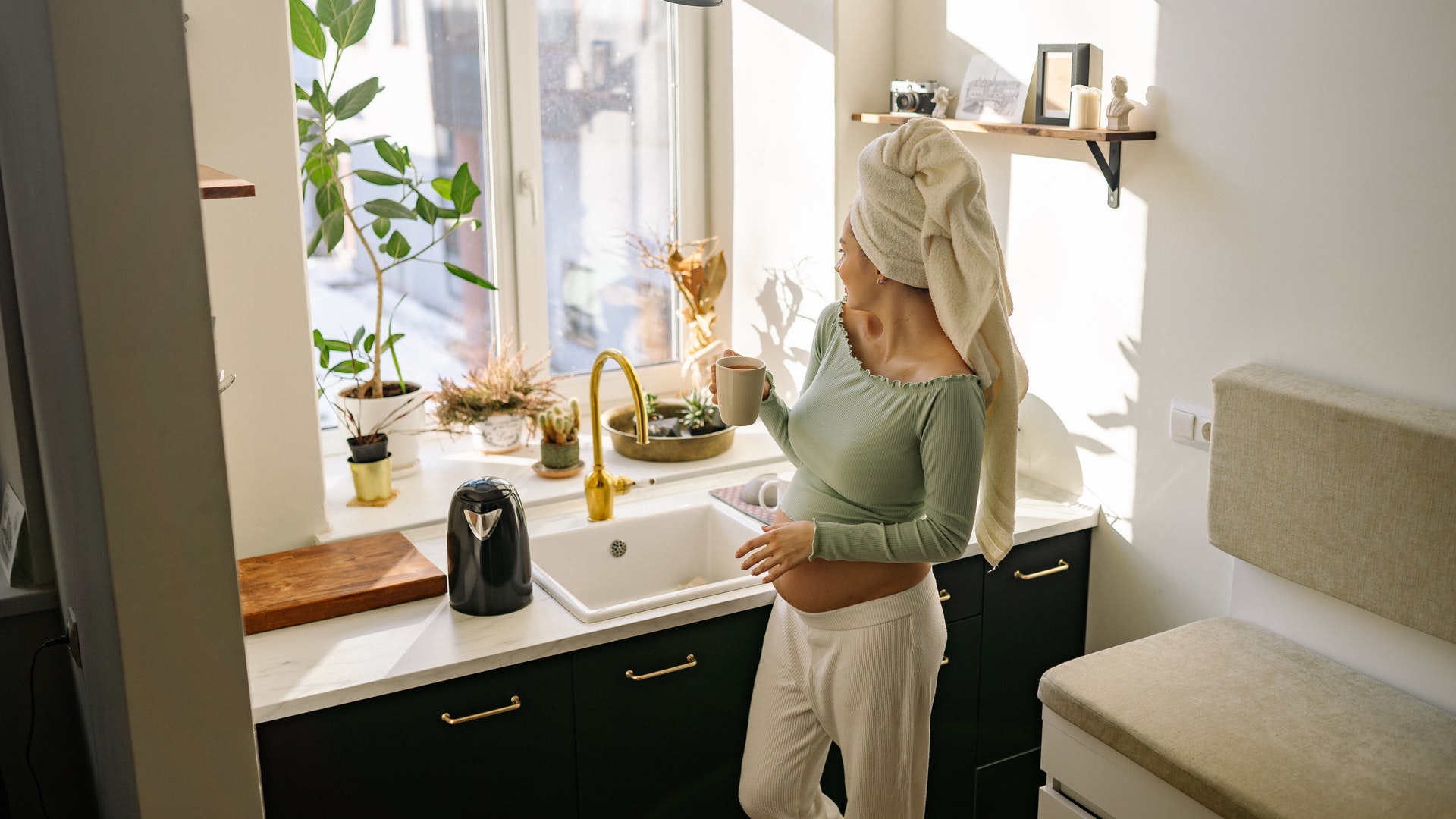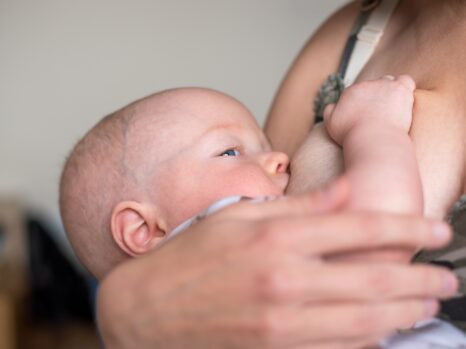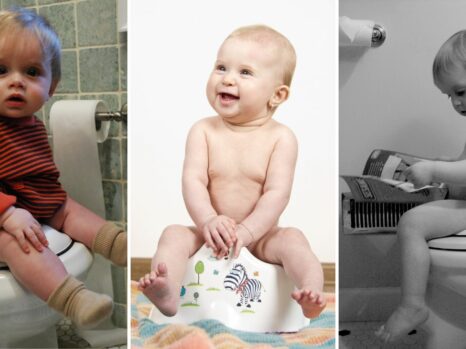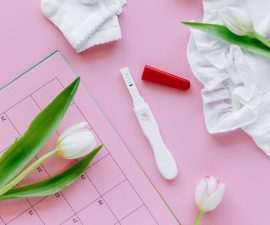Java, cuppa, the daily magic dose, a cup of joy- these are a few of the sweet names people use to refer to coffee.
It is one of the drinks with caffeine, a natural stimulant in more than sixty foods and beverages, and boosts focus, alertness, and concentration.
However, too much caffeine is linked to addiction, insomnia, and increased heartbeats.
Consequently, if you are pregnant and are a fan of coffee, you might have to think about cutting it down to avoid the potential risks.
This article helps you understand whether caffeine is safe during pregnancy, the potential side effects, ways to cut back on caffeine, and many more. Stay tuned to get the gist of all this.
Can I Have Caffeine While Pregnant?

While a moderate amount of caffeine is generally safe when pregnant, you might want to know if things change when you are expecting.
Several studies suggest that a woman should limit her caffeine intake to only 200mg per day.
Of course, if you are not pregnant, you might take up to 400mg of caffeine per day with no side effects.
However, pregnant women take longer to process and eliminate caffeine from the body, hence the need to cut it down.
In fact, one study by Healthline says that expecting women take 1.5-3.5 times lower than those not pregnant to remove caffeine from the body.
Furthermore, the effects of excess caffeine in the body of a pregnant woman and her unborn baby are also to be dreaded.
A review of more than 20 studies showed that increased risk of miscarriage, low birth weight, and increased risk of heartbeat are common effects of excess caffeine during pregnancy.
Besides, many women have reported sleeplessness, poor sleeping patterns, nervousness, and irritability after taking high amounts of caffeine during pregnancy.
The guidelines on taking caffeine for pregnant women vary from one country to another, which may leave them confused.
However, the existing studies have proved that excess caffeine intake is not safe for pregnant women, and cutting it down will be good for them.
What’s more, research has shown that too much caffeine can permeate the placental barriers and reach the fetus, potentially causing him negative side effects.
Therefore, it is essential for expecting women to lower their caffeine intake to protect themselves and their unborn children.
The same applies to breastfeeding women who are also sensitive to excess caffeine.
Although coffee and tea are the two common beverages known to contain caffeine, there are many others, and knowing how much caffeine there is in each of these foods and drinks is important so that you don’t get past the threshold during pregnancy.
Is Coffee Safe During Pregnancy?

Coffee is most people’s favorite, no wonder it is called all those sweet names, including a cuppa, java, a cup of joy, daily magic dose, and many others.
However, when a woman gets pregnant, she wants to do everything to protect the baby and may want to know whether coffee during pregnancy is safe.
This becomes even more confusing because there are many dos and don’ts during pregnancy, and keeping up with them may just be challenging.
In fact, not taking coffee was one of the don’ts for a long time, although some health experts still hold that an expecting woman should not take coffee.
One study by The Conversation Journal asked five experts whether taking coffee during pregnancy is safe and if women have nothing to worry about as they take coffee.
Surprisingly, four out of the five experts agreed that taking coffee during pregnancy was safe, and one only needs to keep it moderate, while the other health expert maintained that coffee was not safe for expecting women and they had to totally avoid it.
Moreover, when the experts were asked what moderate amount meant, they mentioned a cup of filter coffee or two cups of instant coffee because either would translate to not more than 200mg, which many doctors mention as the maximum amount of caffeine for pregnant women.
Many doctors and medical experts are wary about excess caffeine intake among expecting women, and they are also concerned about excess coffee intake for the same group of people since coffee contains quite a good amount of caffeine.
This means that the effects of taking coffee, especially excess amounts, could be far-reaching for pregnant women.
In several studies conducted over the years, excess coffee intake is linked to giving birth to low-weight children.
Often than not, giving birth to an underweight child is problematic, and the child will likely have health problems from birth, right into adulthood.
In fact, such babies often have heart problems, and a good number do not make it to adulthood.
In addition, research shows that drinking a lot of coffee during pregnancy can lead to miscarriage, although studies are inconclusive about this.
In other cases, women who took extremely high amounts of coffee during pregnancy experienced stillbirth.
Other issues excess coffee might cause a pregnant woman include anxiety, instability, insomnia, increased heartbeats, and many others.
Therefore, while drinking coffee may be ok during pregnancy, women should keep it moderate to avoid negative side effects.
How Much Caffeine Is In Coffee?

Caffeine is a natural nervous system stimulant found in many drinks, beverages, foods, fruits, and vegetables.
Some medicines for colds also have caffeine. Among the drinks, coffee and tea are popularly known for having caffeine.
Are you a fan of coffee and would like to know how much caffeine is there in coffee?
This section will help answer your question so that the next time you are drinking coffee, you will be certain about how much caffeine you are taking into your system.
Coffee is a brewed drink made from the coffee beans or the seeds or berries of the coffee plant.
You can enjoy coffee in various ways as French press, espresso, coffee latte, and canned coffee, which is already brewed.
Interestingly, different types and brands of coffee contain different amounts of caffeine. For instance, decaffeinated, brewed, and instant coffee has 2 mg, 95 mg, and 65 mg of caffeine, respectively, for an 8 oz cup.
Cold-brew, another type of coffee, and espresso contain between 153 mg and 238 mg, and 63 mg of caffeine, respectively, for an 8 oz cup.
Various coffee brands also differ in the amount of caffeine they contain. For example;
- Starbucks– is among the top coffee dealers worldwide. On average, their 12 oz cup of Pike Place roast, decaf Pike Place roast, cold brew with cold foam, caramel macchiato, and cappuccino contains 235 mg, 20 mg, 155 mg, 75 mg, 75 mg of caffeine, respectively.
- Seattle’s Best– is one of the best coffee dealers, and its brands can be found in many fast-food restaurants like Burger King and Subway and in the drive-throughs. For its 12 oz cup of brewed coffee, latte, mocha, and espresso, you will be taking 260 mg, 75 mg, 80 mg, and 75 mg of caffeine, respectively.
You can check Coffee Informer, an online website, for information on caffeine amounts in different coffee brands.
The Amount Of Caffeine In Common Foods And Beverages
As previously mentioned, caffeine is naturally found in many foods, drinks, fruits, and vegetables, although some pharmaceutical companies include coffee in the drugs, such as those used for colds.
Knowing how much caffeine there is in foods and beverages that contain this stimulant is important, especially for those sensitive to caffeine and pregnant women who need not take more than 200 mg of caffeine in a day.
The previous sections showed that caffeine amounts can vary greatly, from 2 mg for decaffeinated coffee to 237 mg for cold brew for the 8 oz cup. Different brands of sodas equally have varying amounts of caffeine.
For instance, most root beer and citrus brand sodas have 0 mg caffeine in the 8 oz bottle, while the cola has 22 mg of caffeine for the same capacity.
The same applies to energy drinks, where some have small amounts of caffeine while others are heavily caffeinated.
For example, an 8 oz bottle of energy drink typically has 29 mg of caffeine, while just an ounce of energy shot contains 215 mg of caffeine, meaning that eight ounces of the same short would be extremely high amounts of the natural stimulant.
Any food flavored with chocolate also contains caffeine, but the amount varies depending on the percentage of cocoa used.
For instance, a 100 g serving of 100% cocoa chocolate, sweet-bitter chocolate (55% cocoa), and milk chocolate (35% cocoa) contains 240 mg, 124 mg, and 45 mg of caffeine, respectively.
Green tea, yerba mate, and caffeinated chewing gums (like RunGum) have 30 – 50 mg and 20 – 180mg caffeine in the 8 oz cup, and 50 mg for two gums, respectively.
Are There Any Advantages Of Caffeine During Pregnancy?

Most health experts recommend that pregnant women keep their caffeine intake low, to about 200 mg per day.
You may wonder if taking caffeine has any advantages during pregnancy. While the answer to this question is still debatable, you might be interested in knowing what some studies have established.
Some of the claimed benefits of caffeine during pregnancy include;
- Treating headaches– some studies claim that caffeine works well with pain relievers to help stop a headache. For instance, some women take acetaminophen to ease their headaches during pregnancy, and it has proven effective. Acetaminophen has caffeine as one of its ingredients.
- Helping one stay focused and alert– some women who still work during their first and second trimester often take caffeine in moderation to boost their alertness and focus. This is because caffeine, a natural stimulant, excites the central nervous system, enhancing focus and alertness. Even so, moderation is key to avoiding developing the negative side effects of caffeine.
- Protecting cell damage– a recent study claimed that some pregnant women have improved their cell condition and prevented cell degeneration. Taking caffeine from natural products like green tea supplies the body with antioxidants, compounds that enhance the body’s defense mechanism and protect the cells.
- Reducing inflammation– most chronic illnesses are caused by inflammation. However, studies have shown that powerful antioxidants and phytochemicals. Some sources of caffeine, including green and white tea, also have antioxidants that help reduce inflammation.
- Reducing oxidative stress– free radicals are compounds from the environment, radiation, and pollution, although some may originate from metabolism.
When they accumulate in the cells, they result in a state called oxidative stress, which alongside inflammation, is linked to cancer, heart disease, and diabetes.
Research shows that antioxidants in green and white can fight them and reduce the risk of such diseases. Pregnant women can also benefit from the same, as long as they keep the caffeine levels moderate.
Tips For Cutting Back On Caffeine During Pregnancy
From the write-up, it is clear that pregnant women must cut back on their caffeine intake during pregnancy, or else they may experience miscarriage or stillbirth, and the child may also be born underweight.
However, you might want to know how to cut back your caffeine intake, especially if you love it and would never go a day without taking coffee, green tea, or any caffeinated beverage or food.
Here are a few tricks which will make the daunting task easy;
- Identify what you enjoy in the caffeine fix- could it be the taste? Switch to other coffee without caffeine like decaf espresso and still enjoy the taste. If it’s about sparkling, switch to sparkling water without caffeine.
- Rely on the old-fashioned way to get energy- by eating small amounts of healthy snacks from time to time to re-energize and hydrate yourself.
- Take it slow- if you were used to six cups of coffee a day and you suddenly stop, your system will be shocked. Instead, gradually reduce the amount until when you are doing just a cup a day.
- Mix regular coffee with decaffeinated ones- especially if your craving is so great that you can’t resist it.
Bottom Line
Caffeine is a natural stimulant found in many drinks and foods. Energy drinks, coffee, tea, cola, chewing gums, and sodas are some of the foods with caffeine.
Although caffeine is great for the system and will help you stay alert, excess caffeine is related to sleeplessness, increased pulse rate, and heart issues.
The side effects are worse in pregnant women who may have a stillbirth, low birth weight, and miscarriage due to excess caffeine.
If you are pregnant and must take caffeine, keep it below 200 mg a day.















